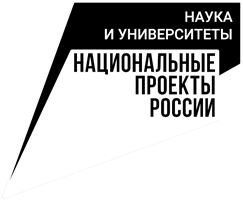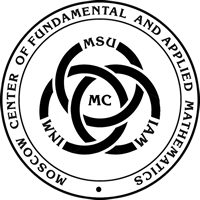As part of the cooperation between the Chinese-Russian Mathematical Center (Beijing) and the Moscow Center of Fundamental and Applied Mathematics (Moscow), leading Russian and Chinese scientists will read several special courses on topical topics that are actively emitted by specialists around the world, including in Russia and China.
Lecture Course «Nijenhuis Geometry»
Lectors
| Alexey Bolsinov | Professor, Lauborough, Great Britain, Lomonosov Moscow State University, Russia |
| Andrey Konyaev | Docent, Lomonosov Moscow State University, Russia |
This course is an introduction to Nijenhuis Geometry, a new challenging area in Differential Geometry that studies local and global properties of geometric structures given by a field of endomorphisms with vanishing Nijenhuis torsion. This topic is located on the crossroad of Geometry, Mathematical Physics and Algebra as Nijenhuis structures naturally appear in many seemingly unrelated research areas such as bi-Hamiltonian integrable systems (both finite and infinite-dimensional), projective geometry, theory of left-symmetric algebras and others.
Course scopes
- Fields of endomorphisms. Nijenhuis torsion and Nijenhuis operators: equivalent definitions.
- Basic properties of Nijenhuis operators. Splitting theorem.
- Diagonalisable and differentially non-degenerate Nijenhuis operators.
- Nijenhuis operators with complex eiganvalues. Generalised Nirenberg-Newlander theorem.
- Nilpotent Nijenhuis operators and Jordan blocks.
- Singular points of Nijenhuis operators and linearisation.
- Left-symmetric algebras. Linearisability and non-degenaracy.
- gl-regular Nijenhuis operators and their canonical forms.
- Nijenhuis perturbations of a Jordan block.
- Normal forms for gl-regular Nijenhuis operators in dimension 2
- Global properties of Nijenhuis operators on closed manifolds.
- Nijenhuis operators and bi-Hamiltonian systems.
- Nijenhuis operators and geodesically equivalent metrics.
- Niejnhuis operators and Poisson brackets f hydrodynamic type.
- Open problems in Nijenhuis Geometry.
Dates and times: 13:40 (GMT+3) on Mondays and Thursdays
Duration: 12 weeks
First lesson: 03/22/2021, 13:40 (GMT+3)
Lecture Course «Introduction to the Theory of Integrable Systems»
Lectors
| Oleg Mokhov | Professor, Lomonosov Moscow State University, Russia |
| Sergey Smirnov | Docent, Lomonosov Moscow State University, Russia |
Theory of Integrable Systems is an area of mathematics that lies at the crossroads of the theory of differential equations, geometry and physics. It had been rapidly developed by a number of outstanding mathematicians and physicists in the last quarter of the twentieth century.
The aim of this course is to form a well-focused and gentle introduction into this area, to describe the basic notions and methods of the Theory of Integrable Systems and to consider a number of important examples coming from differential geometry, classical mechanics and theoretical physics. Within the frame of this course we will discuss various notions of integrability, the concept of Lax representation, the inverse scattering method and we will apply these methods to the study of such well-known and significant integrable systems as the Toda lattice and the KdV equation.
The course is useful not only for those students who specialize in the theory in integrable systems (as a base for future research), but for those who work in the field of geometry, topology and differential equations as well.
Course scopes
- The Lagrangian formalism: elements of variational calculus, Euler–Lagrange equation, Lagrangian approach to Newtonian mechanics, variational principle and geodesics, Noether’s theorem, generalized variational problem with higher-order derivatives.
- The Hamiltonian formalism: Hamiltonian equations, Hamiltonian form of Lagrangian equation, Poisson brackets and first integrals.
- Symplectic and Poisson manifolds, Darboux’s theorem. Hamiltonian vector fields. Symplectic leaves, Casimir functions.
- Liouville integrability: Liouville–Arnold theorem and action-angle variables.
- Classical examples of integrable systems: Kepler problem, the Lagrange top, geodesics on an ellipsoid.
- Lax representation and first integrals. Lax representations with spectral parameter.
- The theory of one-dimensional Toda lattice: Lax representation, Liouville integrability, inverse scattering method. Relation to the QR-algorithm.
- Bi-Hamiltonian approach and Lenard–Magri scheme.
- The theory of Veselov–Shabat dressing chain: Darboux transformations, Liouville integrability and relation to the Painvele equation.
- Integrable discrete equations on quad-graphs: 3D-consistency and zero curvature representation. Cauchy problem and the Adler–Bobenko–Suris theorem.
- Isospectral deformations of the Schrodinger operator and the Korteweg-de Vries equation (KdV). Single soliton solution.
- Gelfand–Dickey approach: pseudo-differential operators and the square root of the Schrödinger equation. The KdV hierarchy.
- Elements of the scattering theory for one-dimensional Schrödinger operatior with rapidly decaying potential.
- The inverse scattering method for the KdV equation: Gelfand–Levitan–Marchenko eqution, Gardner–Green–Kruskal–Miura equations.
- Reflectionless potentials and multi-soliton solutions for the KdV equation. Interaction of solitons. Asymptotics of solutions to the KdV equation.
- Modified KdV equation, the Miura transformation. Backlund transformation for the KdV equation. The Hirota’s method.
- Gardner–Zakharov–Faddeev bracket. Hamiltonian and bi-Hamiltonian structures for the KdV equation.
- Polynomial integrals of motion for the KdV equation and its complete integrability.
- Asymptotic curves on the surfaces of constant negative curvature and the sin-Gordon equation.
Dates and times: 10:10 (GMT+3) on Tuesdays, 13:40 (GMT+3) on Thursdays
Duration: 12 weeks
First lesson: 03/23/2021, 10:10 (GMT+3)
The lectures will be held on the Tencent VooV Meeting service.
To participate, you need to install the application from the link: https://voovmeeting.com
Follow the announcements on our website for ConferenceID and passwords.

